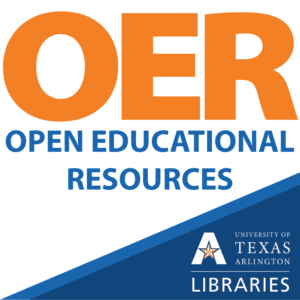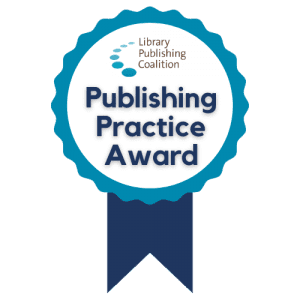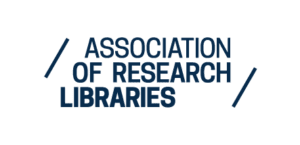June 22, 2021
Publishing Practice Award: University of Texas at Arlington Libraries – Mavs Open Press
By Nancy Adams
Growing Together: Implementing Accessibility Practices into OER Workflows
by Michelle Reed, Assistant Professor and Head of the Scholarly Commons, University Library of the University of Illinois at Urbana-Champaign (@LibrariansReed); Brittany Griffiths, Publishing Specialist, UTA Libraries; Alexandra Pirkle, Editorial Services Coordinator, UTA Libraries, Katie Willeford, Interim Directory of OER and Learning Resources Librarian (@utalibraries)
Mavs Open Press, operated by the University of Texas at Arlington Libraries (UTA Libraries), offers no-cost services for UTA faculty, staff, and students who wish to openly publish their scholarship. The Libraries’ program provides human and technological resources that empower our communities to create or adapt open educational resources (OER). Course materials published by Mavs Open Press are openly licensed using Creative Commons licenses to allow for revision and reuse and are offered in various digital formats free of charge.
Mavs Open Press has proactively addressed accessibility and inclusion in our work through our OER training program, implementation of accessibility checks throughout the publishing process, and development of an accessibility statement and workflow. The Applied Fluid Mechanics Lab Manual was the first grant-funded OER published by Mavs Open Press and was instrumental in informing how accessibility is integrated into OER publishing at UTA.

 The Publishing Practice Awards are designed to recognize and raise awareness of effective and sustainable library publishing practices. They highlight library publishing programs that exemplify concepts advanced in LPC’s
The Publishing Practice Awards are designed to recognize and raise awareness of effective and sustainable library publishing practices. They highlight library publishing programs that exemplify concepts advanced in LPC’s 



